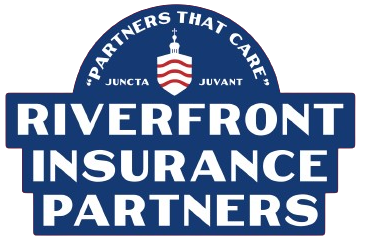Owning a vacation home or a second property can be a dream come true, offering a personal retreat or a valuable rental income stream. However, insuring these properties comes with unique challenges and considerations. Home insurance for vacation homes or second properties is different from your primary residence, so it’s essential to understand how to properly protect your investment.
Table of Contents
1. Differences Between Primary and Vacation Home Insurance
While home insurance for primary residences is quite common, insuring a vacation home or second property is a bit different. Since these homes are often vacant for longer periods, they come with a higher risk of incidents like theft or damage going unnoticed for extended times.
Key differences include:
- Higher premiums: Vacation homes are often considered higher risk due to extended vacancies and location (e.g., beachfront, mountain).
- More specific coverage needs: You may need extra coverage for natural disasters common to the area, like floods or hurricanes.
- Liability coverage: If you rent your second property to guests, you may need extra liability insurance in case someone is injured while staying there.
At Riverfront Insurance Partners, we can help you find the right insurance policy to protect your second property.
2. Types of Coverage You May Need
When insuring a vacation home, it’s essential to understand the different types of coverage available. A standard homeowners policy may not be sufficient if the property is rented out or if it is in an area prone to natural disasters.
Here are some types of coverage to consider:
- Dwelling and structure coverage: Protects the physical structure of your vacation home against damage.
- Personal property coverage: Covers items inside your home, like furniture, electronics, and appliances.
- Liability insurance: Essential if you plan to rent out your vacation home, as it protects you from potential lawsuits if a guest is injured on your property.
- Loss of use coverage: Reimburses you if your property becomes uninhabitable due to a covered event and you lose rental income.
- Natural disaster insurance: Depending on the location, you may need additional coverage for floods, earthquakes, or hurricanes.
3. How Location Affects Your Policy
The location of your vacation home or second property plays a significant role in the type of insurance coverage you will need. Coastal properties may face the risk of hurricanes, while mountain cabins could be prone to wildfires or snow damage. Additionally, properties in rural or remote areas might experience delayed emergency responses, increasing the risk of extensive damage from fires, theft, or weather events.
Consider the following based on location:
- Coastal areas: Flood and windstorm insurance may be necessary.
- Mountain areas: Coverage for snow-related damage or wildfires may be a priority.
- Urban areas: Ensure adequate coverage for vandalism or theft if the property is left unoccupied for long periods.
4. Vacation Rental Considerations
If you plan to rent out your vacation home on platforms like Airbnb or VRBO, additional insurance considerations come into play. Your standard home insurance policy may not cover damage or liability related to renting your property, so it’s essential to look into landlord or short-term rental insurance.
Here’s what to consider:
- Rental income protection: If your property is damaged and can’t be rented, this coverage helps replace lost income.
- Damage caused by tenants: Many policies offer options to cover damage caused by renters.
- Liability insurance for renters: Protects you in case a renter is injured and decides to sue.
Ensure that you disclose your rental activity to your insurer. Failing to do so could void parts of your policy. Speak with a local agent at Riverfront Insurance Partners to find the right solution for your rental property.
5. How to Reduce Your Premiums
While insuring a second property often comes with higher premiums, there are ways to reduce your costs without sacrificing coverage. Making the home safer and less risky to insure can lead to significant savings over time.
Here are a few tips to lower your premiums:
- Install security systems: Monitored alarms, security cameras, and smart locks can deter theft and lower premiums.
- Bundle your policies: If you insure both your primary home and vacation property with the same provider, you may be eligible for a discount.
- Choose a higher deductible: Opting for a higher deductible can lower your monthly premium, but ensure you have enough savings to cover it if needed.
- Maintain the property: Regularly maintaining the property can prevent claims related to wear and tear or deferred maintenance.
Ready to Protect Your Vacation Home?
Owning a vacation home or second property is a rewarding investment, but it also comes with its share of risks. Ensuring you have the right coverage will protect your home, your assets, and your peace of mind. At Riverfront Insurance Partners, we specialize in personalized home insurance plans to safeguard your vacation home.
Call us today at 859-512-8325, visit our website at Riverfront Insurance Partners or check out our Google Maps listing to get started on the perfect insurance plan for your second property!
